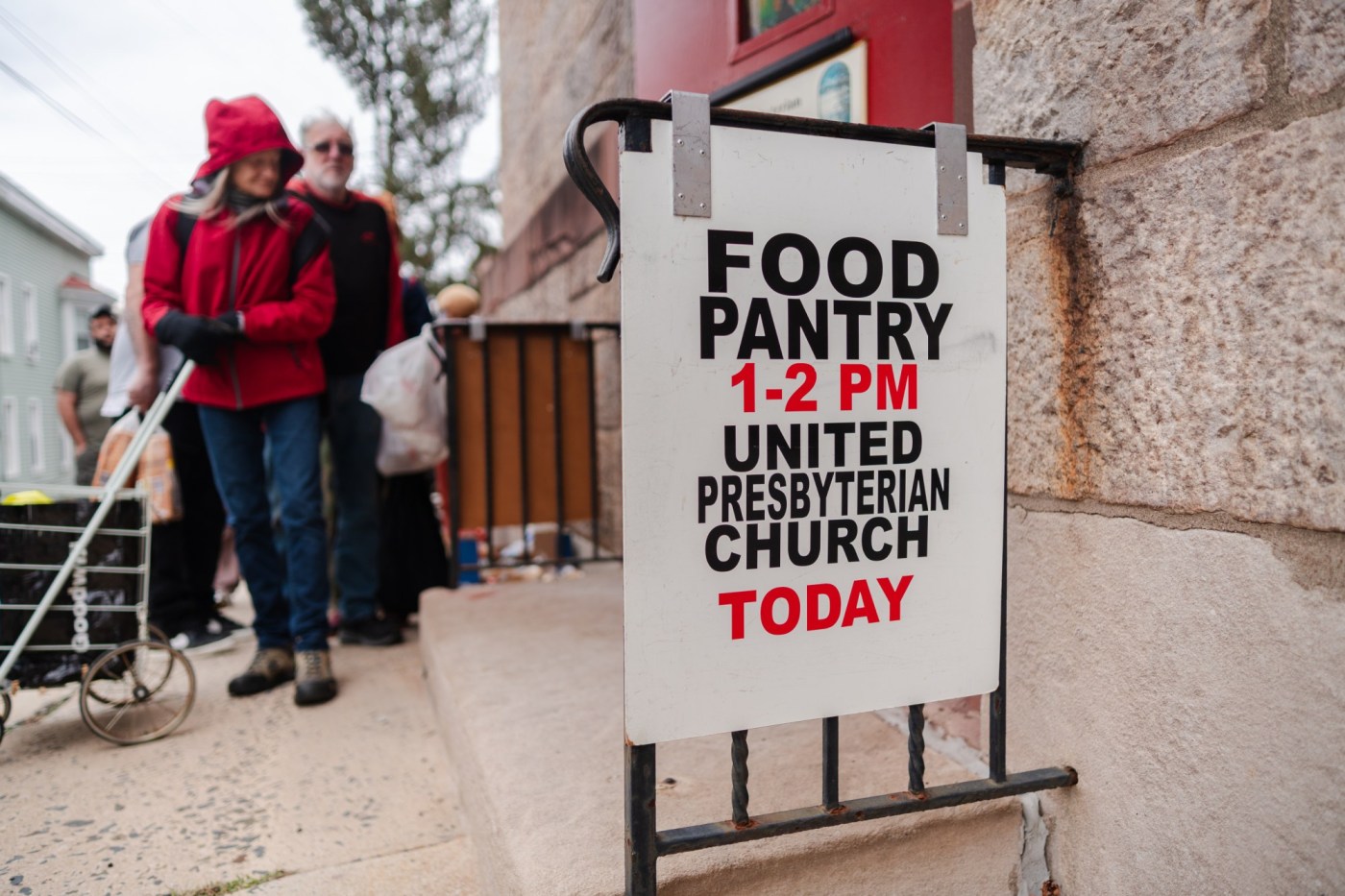Approximately 26,000 residents in Schuylkill County, Pennsylvania, are at risk of losing their food stamp benefits due to an ongoing federal government shutdown. The Supplemental Nutrition Assistance Program (SNAP), which provides vital food assistance, will likely be suspended across the nation unless a budget resolution is reached.
Leslie Barringer, a 64-year-old resident of Pottsville, relies heavily on the two bags of food she receives monthly from the United Presbyterian Church pantry. In addition to this support, she receives just $23 each month from SNAP, which she uses to purchase basic groceries such as bread, margarine, and eggs. “It helps,” she remarked, underscoring the importance of this limited financial aid in her daily life.
As the shutdown progresses, the United States Department of Agriculture announced that it would not fully fund November’s SNAP benefits across Pennsylvania. This decision could leave Barringer and nearly 2 million other Pennsylvanians without necessary food support during a time of rising grocery prices. According to state officials, unless Congress passes a budget or continuing resolution quickly, SNAP payments will be delayed.
Governor Josh Shapiro stated that the state government cannot cover the lost federal funding. Members of the community are already feeling the strain of the impending cuts. Angela Vesay, a 47-year-old Pottsville resident, expressed her concerns while picking up food for herself and her 14-year-old son. She relies on $160 in SNAP benefits each month and is currently seeking employment, though her physical and mental disabilities pose significant barriers.
Barringer also articulated the broader impact of the anticipated SNAP freeze. “It’s going to hurt people,” she said, emphasizing that many individuals in her community are already struggling to make ends meet. In Schuylkill County, approximately $4.9 million in SNAP benefits is distributed each month, which is crucial for families who depend on it for sustenance.
The challenges posed by the potential SNAP suspension are compounded by the fact that local food pantries cannot completely substitute the food assistance provided by the program. According to Feeding America, SNAP generates nine meals for every one meal distributed through food pantries nationwide. In Schuylkill, SNAP recipients receive an average of $169 monthly, slightly below the state average of $187.
Jay Worrall, president of Helping Harvest Fresh Food Bank, which serves Schuylkill and Berks counties, noted the significant gap that would be created by the SNAP cuts. “It’s hard to see how we can make up for the money that 26,000 recipients will lose in Schuylkill,” he stated. He expressed concern for families, children, and seniors who would struggle to find enough food.
The need for food assistance in Schuylkill is already heightened due to recent federal cuts in food stamp allocations. Worrall observed, “People who didn’t need us before do now.” The network of food pantries supported by Schuylkill Community Action serves all municipalities within the county, but officials are now contemplating borrowing funds to procure food in anticipation of potential shortages.
The community has shown resilience, with many residents donating food and resources to assist local pantries. However, Dave Young, CEO of Schuylkill Community Action, underscored the necessity of continued public support. “We need the public’s help,” he said, highlighting the importance of donations in sustaining food assistance efforts.
In addition to the challenges faced by food pantries, the shutdown will also adversely affect local supermarkets and farms that rely on SNAP as a source of revenue. Young warned, “It will hurt businesses.”
As the situation develops, Helping Harvest has announced the suspension of food distributions at around a dozen of its pantry and mobile market sites in Schuylkill due to cuts in federal funding alongside the budget deadlock. Worrall remains hopeful that these sites will still be able to provide food from alternative sources, albeit in smaller quantities. “We have more demand and less food,” he lamented, noting the unfortunate timing with the holiday season approaching.
Becky Metz, who coordinates the food pantry at United Presbyterian Church, remains committed to supporting those in need despite the increasing demand. “God will guide us,” she stated, emphasizing the pantry’s reliance on community donations and contributions from local businesses.
As the federal shutdown continues, the future of food assistance in Schuylkill remains uncertain, leaving many residents anxious about their ability to secure basic necessities.







